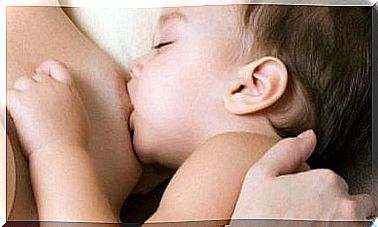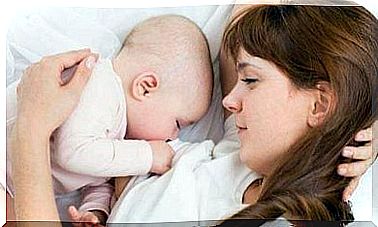The 6 Best Baby Games To Start Learning – Parenthood
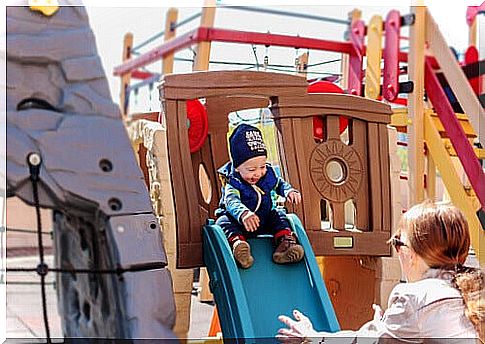
Being a parent requires a great investment of time and effort, since the baby requires, among other things, a lot of attention and care. It’s not just about cleaning and powering the smallest one in the house.
Games for babies are key activities for their development.
The main advantages of games for babies
The benefits of making games part of a baby’s daily routine are endless.
With them they will learn spontaneously and this will allow them to discover themselves and know those around them , they will forge links more easily with others, will begin to channel their emotions and to externalize their feelings and their needs.
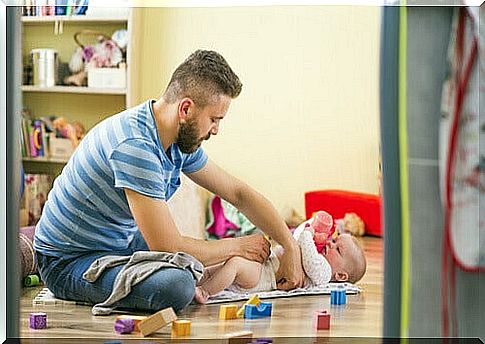
To play these games, in the majority of cases, you will only need a little time in a daily routine. In addition, the information you will need to perform these games according to the baby’s age can be found below.
Some very interesting baby games
Clapping hands (0 to 3 months)
The sound of clapping is one of the easiest and most enjoyable games for a baby. With this game, if you add the melody of his favorite song, you will get the ideal combination.
Dance partner (from birth)
Music stimulates the senses and has the ability to change the mood of anyone. This is why dancing with the baby while exploring various rhythms and styles is a very enriching activity for everyone.
You just have to take it in your arms and move its body to the rhythm of the music. We will start with gentle movements and as the baby grows we can try more complete movements.
Whatever the movements, you should never shake the baby suddenly.
Baby flying (from 6 months)
Hanging it in the air is a suitable game when baby knows how to hold his head on his own.
You can pretend it’s a space rocket, helicopter, or superhero. With this you will get a smile from the little one at the same time as you stimulate his imagination and strengthen the muscles which are used to support his neck.
This is a simple game that can be played at any time of the day. With this game you maintain psychomotricity.
Two babies (3 to 6 months)
Playing in front of a mirror brings many benefits for the baby such as learning to recognize himself. We will start the game by making face-to-face gestures and then repeating them in front of the mirror.
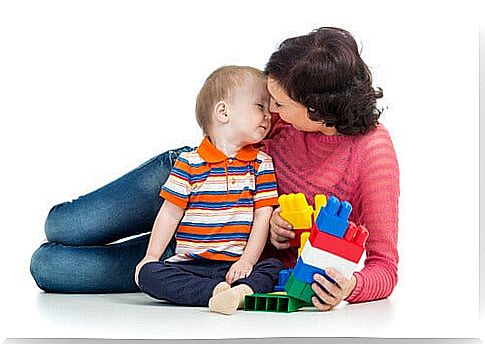
With this game the child will have the first clues to the fact that the reflection he sees is his reflection and that of the person who initiates the game. This activity will be even more fun if you approach him and move him away from the mirror step by step.
Playing in front of the mirror also contributes to the maturation of the brain and will help it with coordination and precision of movements. Another important aspect is to encourage the creation of your own ego. You can also use suitable games for this.
Put away in order (from 6 months)
With a container that is easy to fill and empty like a shoebox, babies can put things in and take out many times in their preferred order of preference.
Mom or Dad will start the game by inviting the baby to imitate them. To perform this activity in a more fun way you can empty the box all at once by making funny gestures and then starting to put the objects away one by one. This, in addition to developing the habit of putting toys away after using them.
As the baby grows, the game can evolve by encouraging grouping of objects by color and / or size.
Where’s the baby? (4 to 12 months)
Few people can resist a baby’s laughter. While pretending to lose sight of it is one of the most common games, it is also one of the most fun for everyone.
In addition, in a very short time, it will help baby know where his head is. It is common for a little one to think that by hiding his eyes he becomes invisible.
These children’s games will make a very entertaining routine for all members of the family. Day after day, this will become an enriching and educational activity for the development of the baby, in addition to helping forge a bond between parents and their child.






